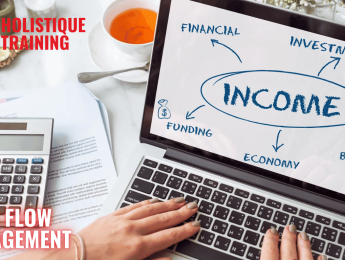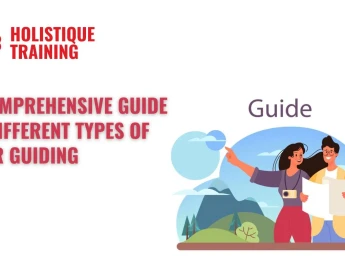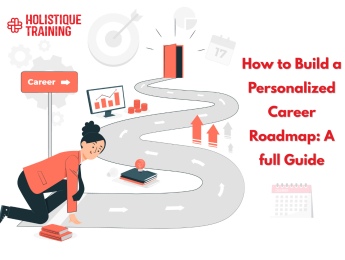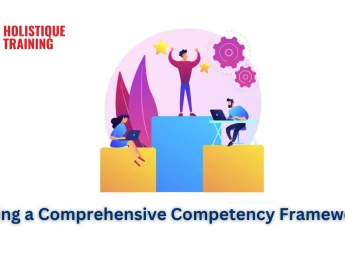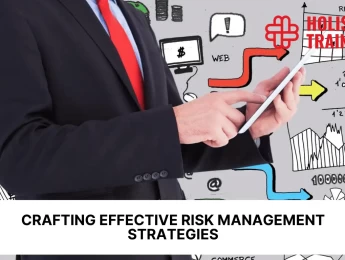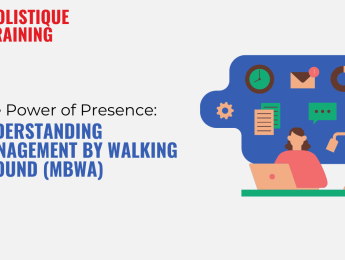- Table of Contents
- Introduction
- What Is Self-Awareness?
- Why Is Self-Awareness Important in the Workplace?
- Building Authentic Relationships
- Effective Communication
- Conflict Resolution
- Personal and Professional Growth
- Better Decision-Making
- What Causes a Lack of Self-Awareness?
- Limited Introspection
- Fear of Vulnerability
- Lack of Feedback
- Cultural and Societal Influences
- Emotional Avoidance
- 10 Tips for Becoming More Self-Aware
- 1- Practice Mindfulness
- 2- Seek Feedback
- 3- Journaling
- 4- Emotional Intelligence Development
- 5- Assess Your Strengths and Weaknesses
- 6- Engage in Introspective Activities
- 7- Embrace Diverse Perspectives
- 8- Develop Empathy
- 9- Encourage a Culture of Feedback
- 10- Commit to Continuous Learning
- Mindfulness Techniques for Enhanced Self-Awareness
- 1. Body Scan Meditation
- 2. Loving-Kindness Meditation (Metta)
- 3. Mindful Breathing Exercises
- 4. Observing Thoughts and Emotions
- 5. Mindful Daily Activities
- 6. Mindfulness-Based Stress Reduction (MBSR) Programmes
- 7. Mindful Self-Compassion Practices
- Conclusion
Introduction
In an ever-evolving landscape of leadership, empathy has emerged as a transformative force that drives team cohesion, productivity, and organisational success. At the core of empathetic leadership lies a vital trait: self-awareness. By cultivating a deep understanding of ourselves, our emotions, and our impact on others, we can harness the power of empathy to connect authentically, inspire trust, and foster an environment of growth. In this blog post, we will explore the profound influence of self-awareness in the workplace and provide you with ten practical tips to nurture this essential skill for empowering and effective leadership.
What Is Self-Awareness?
Self-awareness is the capacity to introspectively recognise and understand one's own thoughts, emotions, strengths, weaknesses, and motivations. It involves developing a deep understanding of our own beliefs, values, and behaviours, allowing us to navigate through challenges, relate to others, and make informed decisions. Self-aware leaders possess a keen sense of emotional intelligence, which enables them to perceive, assess, and manage their own emotions, as well as the emotions of those around them.
Why Is Self-Awareness Important in the Workplace?
In today's dynamic and diverse workplace, self-awareness is pivotal in shaping effective leadership and fostering a positive organisational culture. Let's explore each aspect of self-awareness in detail to delve deeper into its significance in the workplace.
Building Authentic Relationships
Self-awareness lays the foundation for authentic relationships between leaders and team members. When leaders are in tune with their own emotions and understand their strengths and weaknesses, they can relate to their employees on a personal level. This emotional connection creates a sense of trust and camaraderie, making employees feel valued and appreciated. A leader who acknowledges their own vulnerabilities and emotions is better equipped to empathise with their team, leading to increased morale, loyalty, and higher levels of engagement. In fact, statistics show that self-awareness leads to 32% more leadership effectiveness at the workplace. This authenticity resonates throughout the organisation, creating a harmonious work environment where people feel comfortable being themselves, fostering creativity and innovation.
Effective Communication
Leaders possessing self-awareness are adept at effective communication. They can articulate their thoughts clearly, actively listen to others, and adapt their communication styles to suit different individuals and situations. Clear communication prevents misunderstandings and ensures that everyone is on the same page, fostering a collaborative atmosphere. Moreover, self-aware leaders are open to feedback and are willing to have difficult conversations, addressing issues head-on. Encouraging transparent communication creates an inclusive workplace where diverse ideas are welcomed and respected, enhancing problem-solving and decision-making processes.
Conflict Resolution
Conflicts are inevitable in any workplace. However, self-aware leaders can navigate these situations with grace and tact. They can objectively approach conflicts by recognising their biases, triggers, and emotional responses. Self-awareness enables leaders to acknowledge their own mistakes and take responsibility, setting an example for their team members. Moreover, by understanding the perspectives and emotions of others involved in the conflict, a self-aware leader can mediate disputes effectively, finding resolutions that satisfy all parties involved. This promotes a harmonious work environment and prevents long-lasting animosities, ensuring a collaborative and productive workforce.
Personal and Professional Growth
Self-awareness is the cornerstone of personal and professional development. Leaders who understand their strengths can leverage them to excel in their roles, taking on challenges that align with their abilities. Concurrently, acknowledging weaknesses allows them to seek opportunities for growth and improvement. Self-aware leaders actively seek feedback from their peers, mentors, and team members, recognising it as a valuable tool for continuous improvement. They embrace constructive criticism, viewing it as a pathway to enhancing their skills and becoming more effective leaders. By fostering a culture of continuous learning, self-aware leaders inspire their teams to adopt a similar mindset, promoting an environment of growth and innovation.
Better Decision-Making
In the complex landscape of decision-making, self-awareness equips leaders with the ability to make thoughtful and ethical choices. They can evaluate situations from various angles by understanding their values, biases, and emotional responses. Self-aware leaders consider the impact of their decisions on both individuals and the organisation as a whole, ensuring that choices align with the company's values and goals. This mindful decision-making process leads to the implementation of well-informed strategies, fostering the organisation's stability and growth. Moreover, when employees witness their leaders making ethical and empathetic decisions, they are motivated to follow suit, promoting a positive workplace culture based on integrity and fairness. In essence, self-awareness is the bedrock upon which empathetic leadership thrives. By cultivating self-awareness, leaders not only enhance their own emotional intelligence but also inspire those around them. Through authentic relationships, effective communication, adept conflict resolution, personal and professional growth, and informed decision-making, self-aware leaders contribute significantly to the success and well-being of their organisations, creating a workplace where individuals flourish and collaborate harmoniously.
What Causes a Lack of Self-Awareness?
Despite its importance, self-awareness can be elusive for many individuals. In fact, according to research mentioned by Gitnux, an underwhelming 10-15% of people are truly self-aware. Why is that? Here are some of the factors that contribute to the lack of self-awareness:
Limited Introspection
In today's fast-paced world, individuals often find themselves caught in the whirlwind of daily responsibilities. The constant demands of work, family, and social obligations leave little time for self-reflection. Introspection, the art of looking inward, requires uninterrupted time and mental space. When these moments of solitude are scarce, individuals may struggle to delve deep into their thoughts, emotions, and motivations, hindering the development of self-awareness.
Fear of Vulnerability
Introspection demands vulnerability—the courage to confront uncomfortable truths about oneself. Fear of judgement, criticism, or rejection often prevents individuals from exploring their inner selves openly. Admitting flaws, weaknesses, or past mistakes can be intimidating, leading people to avoid self-reflection altogether. Overcoming this fear is essential for embracing self-awareness, as it allows individuals to acknowledge their imperfections and work towards personal growth without shame or apprehension.
Lack of Feedback
Honest and constructive feedback from others acts as a mirror, reflecting our strengths, weaknesses, and blind spots. Without this external perspective, individuals may develop a skewed self-image. Positive feedback can inflate self-esteem unrealistically, while a lack of criticism can lead to a false sense of infallibility. Constructive feedback, when absent, denies individuals the opportunity to understand how their actions and behaviours impact others. Consequently, without an accurate reflection of their actions, individuals remain unaware of areas needing improvement.
Cultural and Societal Influences
Societal norms and cultural expectations significantly shape human behaviour and self-perception. Cultural values may encourage conformity, discouraging individuals from exploring aspects of themselves that deviate from societal norms. Additionally, societal pressures often promote an idealised version of success and happiness, which may not align with an individual's true aspirations and values. Such disconnection from one's authentic self hampers self-awareness, preventing individuals from understanding their genuine desires and motivations.
Emotional Avoidance
Emotions, both positive and negative, are integral to self-awareness. Acknowledging and understanding emotions—such as anger, sadness, or fear—is essential for gaining insights into one's behavioural patterns and triggers. However, emotional avoidance, a common coping mechanism, prevents individuals from confronting these emotions. Suppressing or denying feelings leads to a lack of emotional intelligence, hindering the development of self-awareness. Embracing emotions, no matter how uncomfortable, is crucial to deepening self-awareness.
Overcoming these challenges requires intentional effort, self-compassion, and a willingness to embark on a journey of self-discovery. By addressing these barriers, individuals can gradually dismantle the obstacles preventing self-awareness, leading to personal growth, enhanced emotional intelligence, and empathetic leadership. Seeking support from mentors and therapists or engaging in introspective practices like journaling and mindfulness can provide valuable tools for overcoming these challenges and fostering self-awareness.
10 Tips for Becoming More Self-Aware
Now that we understand the significance of self-awareness and its impact on empathetic leadership, let's delve into ten actionable tips that can help cultivate self-awareness and propel your personal and professional growth:
1- Practice Mindfulness
Engaging in regular mindfulness exercises, such as meditation or deep breathing, provides a space for self-reflection. Mindfulness allows you to observe your thoughts and emotions without judgement. By being fully present in the moment, you can gain insights into your feelings and thought patterns, fostering a deeper understanding of yourself. We’ll be discussing this in more detail in a few.
2- Seek Feedback
Actively seek feedback from trusted colleagues, mentors, or coaches. Embrace constructive criticism as an opportunity for growth and improvement. Request specific examples of your strengths and areas for development. Honest feedback from others provides valuable perspectives that might reveal aspects of yourself that you hadn’t considered, aiding in your self-awareness journey.
Questions | Purpose |
What are my core values and beliefs? | Understanding fundamental guiding principles. |
How do I respond to criticism or feedback? | Recognising emotional reactions and triggers. |
What situations make me feel most alive or engaged? | Identifying passions and areas of enthusiasm. |
What are my typical stressors, and how do I cope? | Recognising sources of stress and coping methods. |
How do I handle failures or setbacks? | Assessing resilience and problem-solving skills. |
How do I impact others' emotions in conversations? | Understanding communication style and empathy. |
What do I love about myself, and why? | Acknowledging strengths and fostering self-love. |
What recurring patterns do I notice in my life? | Identifying habits, triggers, and behavioural tendencies. |
How do I handle conflicts or disagreements? | Evaluating conflict resolution skills and assertiveness. |
What goals do I want to achieve in the long term? | Defining aspirations and personal growth objectives. |
Table 1: Questions to enhance self-awareness
3- Journaling
Maintaining a journal offers a private space to reflect on your thoughts, emotions, and experiences. Regularly writing about your daily interactions, challenges, and achievements helps uncover patterns and triggers. Reviewing your journal entries over time can reveal recurring themes, allowing you to identify areas where self-awareness can be deepened. Journaling promotes self-discovery and encourages honest self-reflection.
4- Emotional Intelligence Development
Enhance your emotional intelligence by recognising and labelling your emotions. Understand the triggers that evoke specific emotional responses and learn effective ways to manage them. Emotional regulation techniques, such as deep breathing or taking a pause before responding in emotionally charged situations, can help you gain control over your reactions. Developing emotional intelligence empowers you to navigate complex emotions and interpersonal relationships with grace.
5- Assess Your Strengths and Weaknesses
Use self-assessment tools or seek professional guidance to identify your strengths, weaknesses, and areas for improvement. Understanding your unique strengths allows you to leverage them effectively, enhancing your confidence and capabilities. Simultaneously, acknowledging your weaknesses provides a clear focus for personal development efforts. By embracing both aspects, you can work towards maximising your potential and overcoming limitations.
6- Engage in Introspective Activities
Set aside regular time for self-reflection through introspective activities. Whether it’s walking in nature, practising gratitude, or engaging in creative hobbies, these moments of solitude provide opportunities for self-discovery. Introspective activities encourage deep contemplation, allowing you to explore your values, beliefs, and aspirations. Embracing solitude nurtures self-awareness by fostering a connection with your innermost thoughts and desires.
7- Embrace Diverse Perspectives
Actively seek out different viewpoints and engage in conversations with people from diverse backgrounds. Listening to varied opinions challenges your existing beliefs and biases, broadening your understanding of the world. Exposure to diverse perspectives fosters a more comprehensive and inclusive self-awareness. By appreciating the richness of human experiences, you gain a broader outlook on life, enhancing your empathetic understanding of others.
8- Develop Empathy
Cultivate empathy by putting yourself in others' shoes. Actively listen to their stories, experiences, and emotions. Demonstrate genuine care and understanding for what others are going through. Empathy allows you to connect with people on a deeper level, fostering your understanding of their perspectives and emotions. By developing empathy, you enhance your emotional intelligence and enrich your self-awareness by appreciating the complexity of human emotions.
9- Encourage a Culture of Feedback
Create an environment within your personal and professional circles where open and honest feedback is welcomed and encouraged. Foster a safe space for your friends, family, and colleagues to share their thoughts and perspectives. Regularly check in with them, actively listening to their feedback. You gain valuable insights into your behaviours and communication styles by being open to constructive criticism. Embracing feedback fosters self-awareness, enabling you to adjust your actions based on the information received.
10- Commit to Continuous Learning
Embrace lifelong learning and personal development. Attend workshops, seminars, training programmes, or pursue formal education to enhance your skills and knowledge. Engaging in learning opportunities challenges your existing beliefs and perspectives. By exposing yourself to new ideas and experiences, you expand your horizons, fostering self-awareness. Continuous learning encourages introspection, prompting you to reevaluate your beliefs and attitudes, contributing to your personal growth journey.
By incorporating these ten tips into your daily life and leadership practices, you can embark on a transformative journey of self-awareness. Remember, self-awareness is an ongoing process that requires patience, perseverance, and a commitment to personal growth. Embrace the journey, and watch as your empathetic leadership flourishes.
Mindfulness Techniques for Enhanced Self-Awareness
In the bustling world we live in, cultivating self-awareness can seem like a daunting task. However, mindfulness techniques offer powerful tools to enhance self-awareness by encouraging focused attention and deep introspection. Here, we explore various mindfulness practices and their profound impact on self-awareness, providing you with practical insights to incorporate these techniques into your daily routine.
1. Body Scan Meditation
Body scan meditation is a practice where you systematically focus your attention on different parts of your body, from toes to head. By paying close attention to each sensation, you develop awareness of bodily experiences and subtle signals. This heightened body awareness helps you recognise physical manifestations of emotions, stress, or tension. Regular practice makes you attune to your body's responses, deepening your understanding of how emotions manifest physically.
2. Loving-Kindness Meditation (Metta)
Loving-kindness meditation, or Metta, involves sending well-wishes and love to oneself and others. You develop compassion and empathy by extending kindness to yourself and those around you. This practice fosters self-love, acceptance, and forgiveness, crucial elements of self-awareness. Metta meditation allows you to explore your feelings towards yourself and others, encouraging a positive and nurturing self-dialogue. As you cultivate kindness within, your ability to understand your emotions and motivations expands.
3. Mindful Breathing Exercises
Conscious breathing is a fundamental mindfulness practice. You anchor yourself in the present moment by focusing on your breath—its rhythm, depth, and sensations. Mindful breathing exercises calm the mind and reduce distractions, enabling you to observe your thoughts and emotions without judgment. This heightened awareness of your mental processes enhances your self-reflective abilities. Moreover, mindful breathing empowers you to manage emotional reactions, allowing for thoughtful responses rather than impulsive actions.
4. Observing Thoughts and Emotions
Mindfulness encourages observing thoughts and emotions without getting entangled in them. Imagine your thoughts and feelings as passing clouds in the sky of your mind. Instead of suppressing or amplifying them, observe them with detachment. This practice helps you recognise recurring thought patterns, triggers, and emotional responses. By becoming a silent observer of your mind, you gain insights into your habitual reactions, paving the way for self-awareness and emotional intelligence.
5. Mindful Daily Activities
Infusing mindfulness into everyday activities enhances self-awareness in the midst of routine tasks. Whether it's eating, walking, or even washing dishes, approach these activities with full presence. Engage your senses—notice the taste, texture, and aroma of your food, feel the ground beneath your feet as you walk, or focus on the sensation of water and soap while washing dishes. Engaging mindfully in these activities not only brings a sense of serenity but also sharpens your awareness of the present moment, helping you recognise your thoughts and emotions as they arise.
6. Mindfulness-Based Stress Reduction (MBSR) Programmes
Participating in structured mindfulness programmes, such as Mindfulness-Based Stress Reduction (MBSR), offers in-depth guidance and support. MBSR programmes typically involve mindfulness meditation, yoga, and group discussions. Guided by experienced instructors, participants learn to observe their thoughts and emotions in a non-judgmental manner. These programmes provide a supportive environment for self-exploration, offering valuable techniques to manage stress and enhance self-awareness. Through regular practice and group interactions, individuals deepen their understanding of their inner workings, fostering a profound sense of self-awareness.
7. Mindful Self-Compassion Practices
Mindful self-compassion involves treating oneself with the same kindness and understanding one would offer to a close friend facing challenges. Through practices like self-compassionate breathing or self-compassion meditation, individuals learn to acknowledge their struggles with a gentle and caring attitude. Cultivating self-compassion enhances self-awareness by allowing individuals to approach their shortcomings and failures with understanding rather than self-criticism. This compassionate perspective fosters a deeper connection with oneself, enabling a more authentic self-awareness journey.
Incorporating these mindfulness techniques into your daily life offers a transformative approach to enhancing self-awareness. As you engage in these practices consistently, you develop a profound understanding of your thoughts, emotions, and behaviours. Mindfulness not only cultivates self-awareness but also empowers you to respond to life's challenges with resilience, compassion, and clarity. Through these techniques, you embark on a journey of self-discovery, embracing your true self and fostering empathetic leadership in all aspects of your life.
Conclusion
Self-awareness is the cornerstone of empathetic leadership, enabling leaders to connect authentically with their teams and drive success. By cultivating self-awareness, leaders can navigate the complexities of the workplace, build meaningful relationships, and make better decisions. By implementing the ten tips outlined in this blog post, leaders can embark on a transformative journey towards enhanced self-awareness, ultimately reaping the benefits of empathetic leadership and fostering a positive and thriving work environment.








